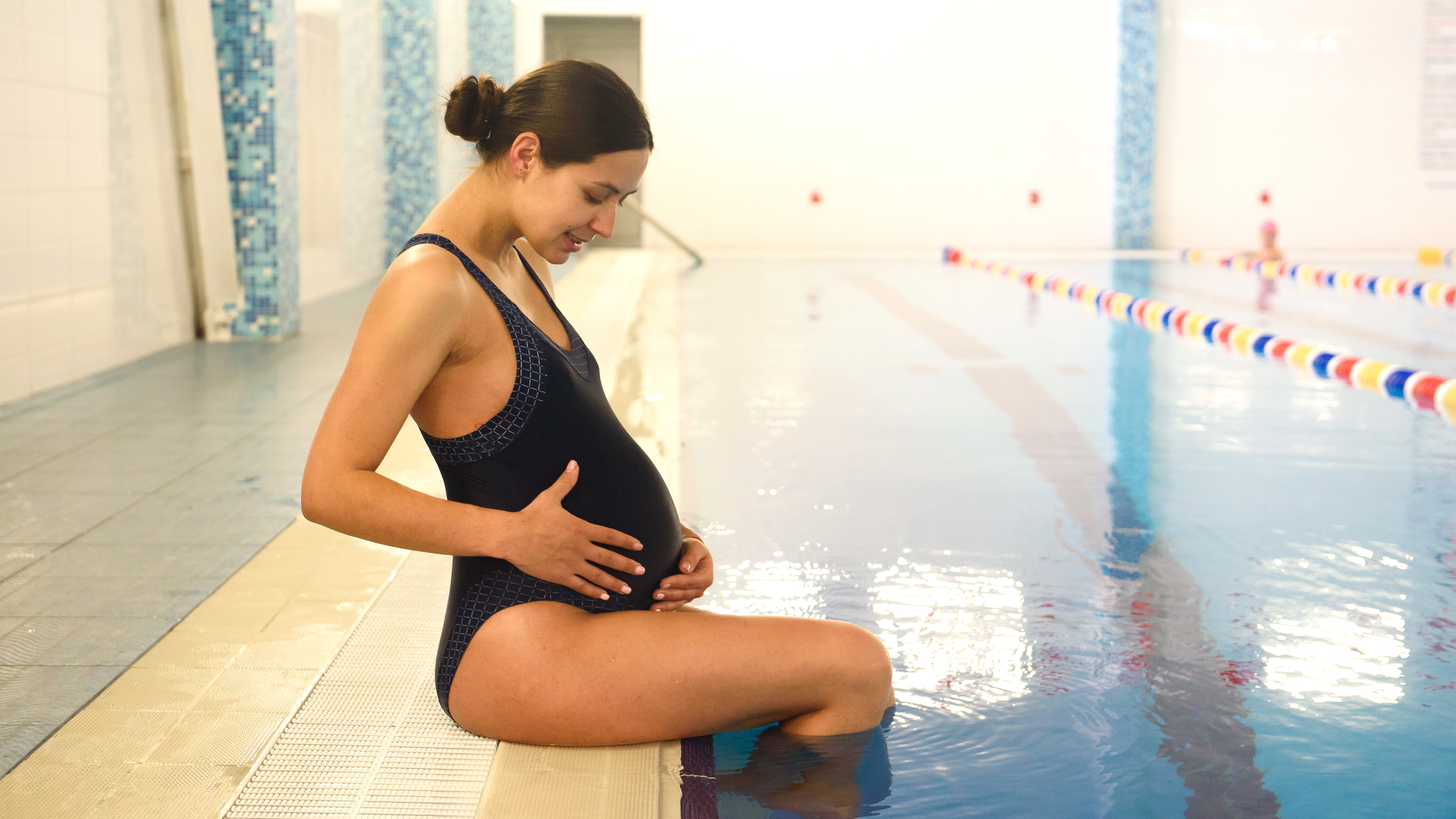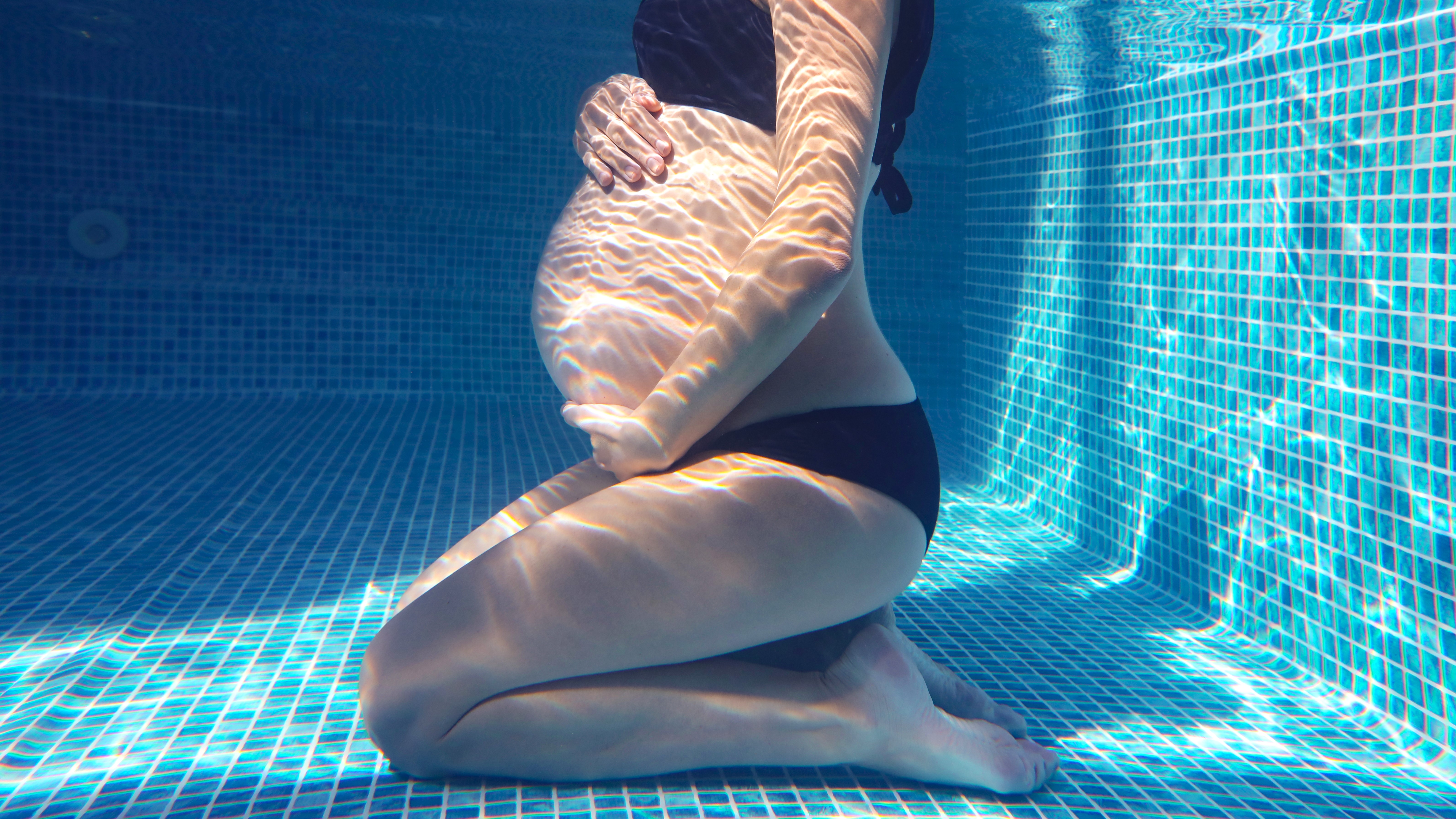Is swimming safe during pregnancy?
We asked an expert

Here at Tom’s Guide our expert editors are committed to bringing you the best news, reviews and guides to help you stay informed and ahead of the curve!
You are now subscribed
Your newsletter sign-up was successful
Want to add more newsletters?

Daily (Mon-Sun)
Tom's Guide Daily
Sign up to get the latest updates on all of your favorite content! From cutting-edge tech news and the hottest streaming buzz to unbeatable deals on the best products and in-depth reviews, we’ve got you covered.

Weekly on Thursday
Tom's AI Guide
Be AI savvy with your weekly newsletter summing up all the biggest AI news you need to know. Plus, analysis from our AI editor and tips on how to use the latest AI tools!

Weekly on Friday
Tom's iGuide
Unlock the vast world of Apple news straight to your inbox. With coverage on everything from exciting product launches to essential software updates, this is your go-to source for the latest updates on all the best Apple content.

Weekly on Monday
Tom's Streaming Guide
Our weekly newsletter is expertly crafted to immerse you in the world of streaming. Stay updated on the latest releases and our top recommendations across your favorite streaming platforms.
Join the club
Get full access to premium articles, exclusive features and a growing list of member rewards.
When it comes to exercising with a bump, things can feel overwhelming. We don’t need to tell you there’s a long list of things you shouldn’t do when you’re pregnant — from how much coffee to drink, to which side you should sleep on at night. That said, for most women, the general advice is to still aim for at least 150 minutes of moderate-intensity physical activity when pregnant. So you might be wondering if swimming is safe during pregnancy?
In a nutshell, yes. In fact, the American College of Obstetricians and Gynecologists say that swimming is one of the safest forms of exercise to do during pregnancy. (Just note that this doesn’t include scuba diving.) Unlike other forms of cardio, swimming is low-impact, making it gentler on the body than jogging or cycling. Below, we’ve spoken to an expert to help you separate fact from fiction, before getting into the pool.
Is swimming safe during pregnancy?
“Swimming is safe during and after your pregnancy and we know that there are huge health benefits of staying active throughout. As with all activities, if you are already swimming, keep going!” says Olivia Tyler, National Fitness Assurance Lead at Nuffield Health. If you’re pregnant and finding other forms of exercise too taxing during pregnancy, swimming is a safe way to maintain fitness levels.
But what about if you’re new to swimming? “As with all activities, if you are already swimming, keep going! If you are new to swimming or exercise in general, start slowly and gradually build up the length or intensity of your workouts”, says Tyler.

What are the benefits of swimming during pregnancy?
“Swimming reduces the impact on joints, improves circulation, and gives a well-deserved feeling of weightlessness” during pregnancy, explains Tyler. Like many forms of aerobic exercise, swimming can help you sleep better — sleep can be difficult at various times of pregnancy, so if you are struggling to nod off, this can help.
Water can also be a form of pain relief during pregnancy — even during active labor, there’s a reason why many women opt to use a birth pool. If you’re experiencing swelling or discomfort during pregnancy, swimming might help, although it’s always worth consulting your midwife or doctor if you have any specific medical concerns.
Which swimming stroke is best during pregnancy?
Are there certain swimming strokes you should opt for if you’re swimming with a baby on board? “This is really dependent on how you are feeling and how far along you are – listen to your body. Earlier in your pregnancy do whichever strokes you are comfortable with and that doesn’t cause you discomfort. For most people, breaststroke is advised in early pregnancy as it can help to strengthen the back muscles and encourage better posture but, in some cases, can exacerbate pelvic and back pain so make sure to listen to your body,” explains Tyler.
Get instant access to breaking news, the hottest reviews, great deals and helpful tips.
“Later on in pregnancy, backstroke isn’t advised as the baby can put pressure on blood vessels in this position,” she adds.
It’s also worth being mindful of how you’re swimming during pregnancy. As with most forms of exercise, you shouldn’t be pushing yourself too hard — like other forms of exercise you should stop if you begin to feel nauseous, you become too hot, or you experience any pelvic or abdominal pain. “A good way of making sure that you aren’t over-exerting yourself is the ‘talk test’ which means you are still able to maintain a conversation while exercising,” says Tyler, although this is harder when swimming than it is with hiking or walking.
“Pregnant people should consider avoiding tumble turns during pregnancy due to the potential increase in acid reflux, and also to avoid bumping the bump,” adds Tyler.
Is chlorine safe during pregnancy?
In a word, yes. A study conducted in 2010 found that there were no negative birth outcomes associated with chlorine or any other cleaning products in swimming pools.
What else should you consider?
There are a few other considerations you should make before heading for the pool, lido, or sea:
Temperature
One thing you should be aware of when swimming during pregnancy is the temperature of the pool. Swimming in water that is very warm should be avoided during pregnancy, as you don’t want to put yourself at risk of raising your body temperature. This is why the use of hot tubs, saunas, and hot baths is not recommended during pregnancy, particularly during the first trimester.
At the same time, you should also avoid plunging into freezing lakes and oceans during pregnancy, as this can cause the body a shock. If you’re swimming in the sea, consider tides and remember that you’re likely to get tired quicker during pregnancy, so avoid swimming too far from shore.
Getting in and out of the pool
Be careful when getting in and out of the pool, or walking around the pool when pregnant, as the surface can often be slippery, and you want to avoid falling and knocking your bump.
Stay hydrated
It’s even more important to stay hydrated during pregnancy and when breastfeeding — experts recommend drinking 8 to 12 cups of water per day. Even if you’re not thirsty when getting out of the pool, remember that after exercise, you might need to drink more to replace fluids and avoid dehydration. You might want to leave a bottle of water at the side of the pool and take drinking breaks during your swimming workout.
Invest in a pregnancy swimsuit
Last, but by no means least, you’ll want to be comfortable when swimming during pregnancy, and this probably means investing in a bump-friendly swimsuit. You don’t want to feel self-conscious when exercising in the pool, so buy a swimsuit that has enough stretch to accommodate your growing bump.

Olivia is a National Fitness Assurance Lead and works to ensure quality assurance across our Personal Training Programmes and offering support for PTs. In previous roles she worked as a Fitness Presenter for NH 24/7 and as a Fitness Manager. Olivia is BACPR qualified (cardiac rehabilitation) and her specialist interests are in connected health and communicating its benefits.
More from Tom's Guide
- My Oura ring knew I was pregnant before I did — here's how
- Best swimming goggles to buy in 2024
- The best swimming headphones on the market

Jane McGuire is Tom's Guide's Fitness editor, which means she looks after everything fitness related - from running gear to yoga mats. An avid runner, Jane has tested and reviewed fitness products for the past five years, so knows what to look for when finding a good running watch or a pair of shorts with pockets big enough for your smartphone. When she's not pounding the pavements, you'll find Jane striding round the Surrey Hills, taking far too many photos of her puppy.
 Club Benefits
Club Benefits










